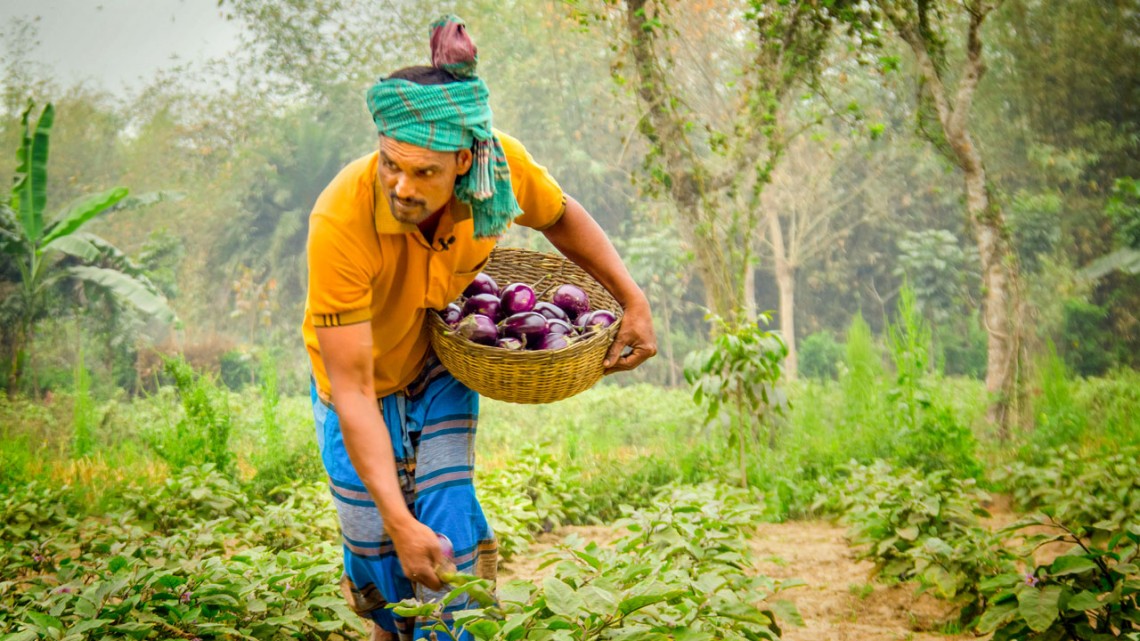
A farmer harvests brinjal in Bangladesh in 2018.
New app a lifeline for eggplant farmers in Bangladesh
By Matt Hayes
A new app co-developed by Cornell researchers is expected to streamline information-sharing, during the COVID-19 pandemic and beyond, for farmers growing one of the most important crops for food security in Bangladesh.
The new app “Btbegun” provides farmers, extension professionals, field officers and other stakeholders with the most current information about Bt eggplant – a genetically engineered variety resistant to a ravenous insect that destroys crops in the field.
The free app, developed by the Feed the Future South Asia Eggplant Improvement Partnership, launched Sept. 15 in the Google play store. An iPhone version is under development.
“Bt eggplant farmers rely on precise, timely information to make numerous decisions about everything they do,” said Maricelis Acevedo, project director and researcher in the Department of Global Development. “This app puts the latest and most scientifically informed data at their fingertips to help them produce the safe, high-quality food the public needs.”
App users can access information about the technology; tips for planting, growing and harvesting Bt eggplant; and video tutorials. A FAQ section will dispel common myths surrounding Asia’s only genetically engineered food crop.
More than 30,000 farmers in Bangladesh currently grow four varieties of Bt eggplant. First grown in 2014, Bt eggplant is resistant to the eggplant fruit and shoot borer, a devastating caterpillar pest that reduces the yield and makes the fruit unmarketable. Traditional eggplant varieties require regular and expensive insecticide spraying during the growing season, with major impacts to the environment and farmer health.
Studies conducted in Bangladesh have shown the public accepts Bt eggplant in the market and documented that farmers growing the genetically engineered crop earned more revenue, produced significantly higher yields and reduced insecticide spraying compared to traditional varieties.
“Bt eggplant is bringing big economic and health benefits to farmers across Bangladesh, and this new app will give farmers a valuable new source of information at a time when COVID-19 concerns are disrupting the ways farmers share and obtain expert advice,” said Vijay Paranjape, vice president for life sciences advisory at Sathguru Management Consultants, which co-developed the app along with Cornell and the Bangladesh Agricultural Research Institute (BARI).
Those who use the app on smartphones get an interactive experience with information and expert advice across the entire farming chain, from seed purchasing to planting to harvesting. Those with regular mobile phones can access some features through a pared-down version that will enable customized text messages.
At the time of its release, about 30,000 Bt eggplant-growing farmers will already be registered in the app. The app tracks input details about area planted, sowing dates, seed source and harvest, and will provide training material for extension officials to use with local farmers.
Matt Hayes is associate director for communications for Global Development in the College of Agriculture and Life Sciences.
Media Contact
Get Cornell news delivered right to your inbox.
Subscribe
